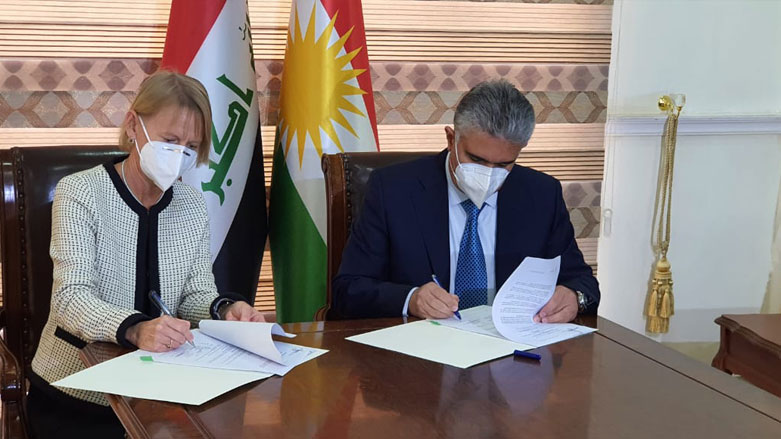KRG does not ‘force’ return of IDPs: official

ERBIL (Kurdistan 24) – The Kurdistan Region does not “force” the Internally Displaced Persons (IDPs) to return to their areas of origins, a top Kurdistan Regional Government (KRG) official told Kurdistan 24 on Wednesday, unlike its Iraqi counterpart.
The remarks came during a signing ceremony of a partnership between the KRG and the United Nations High Commissioner for Refugees (UNHCR) to foster basic services for IDPs and refugees’ camps across the Kurdistan Region.
In the Kurdistan Region, IDPs are not “forced” to go back to their places of origin, unlike what the Iraqi government is implementing, referring to the recent series of camp closures by the federal government, Hoshang Mohammad, the head of the KRG Joint Crisis Coordination Center (JCCC), told Kurdistan 24 on Wednesday.
The Iraqi government has recently undertaken the closure of a number of IDP camps across the areas under its jurisdiction, which drew criticism from international humanitarian organizations, fearing for the fate of the returnees in the face of the COVID-19 pandemic and winter season.
The UNHCR granted the KRG with five million US dollars to continue providing services for the camps the autonomous region hosts, Mohammad told Kurdistan 24.
The Kurdistan Region currently hosts 738,000 IDPs and 260,000 refugees inside the 35 camps it has accommodated, according to the JCCC head.
Out of the 35 host communities inside the Kurdistan Region, 25 of the camps are for IDPs while the remaining 10 camps accommodate refugees, the official revealed.
The Kurdistan Region supports a “voluntary” return of IDPs to their areas, Mohammad said, as it had supported the return of 700,000 refugees since 2016, reiterating the KRG would continue its support.
According to the recent partnership signed between the KRG and UNHCR, “JCCC will administer Camp Coordination and Camp Management (CCCM), maintenance of camp infrastructure, and water, sanitation, and hygiene services to IDPs and Syrian refugees,” according to a statement from the JCCC.
Editing by Karzan Sulaivany
